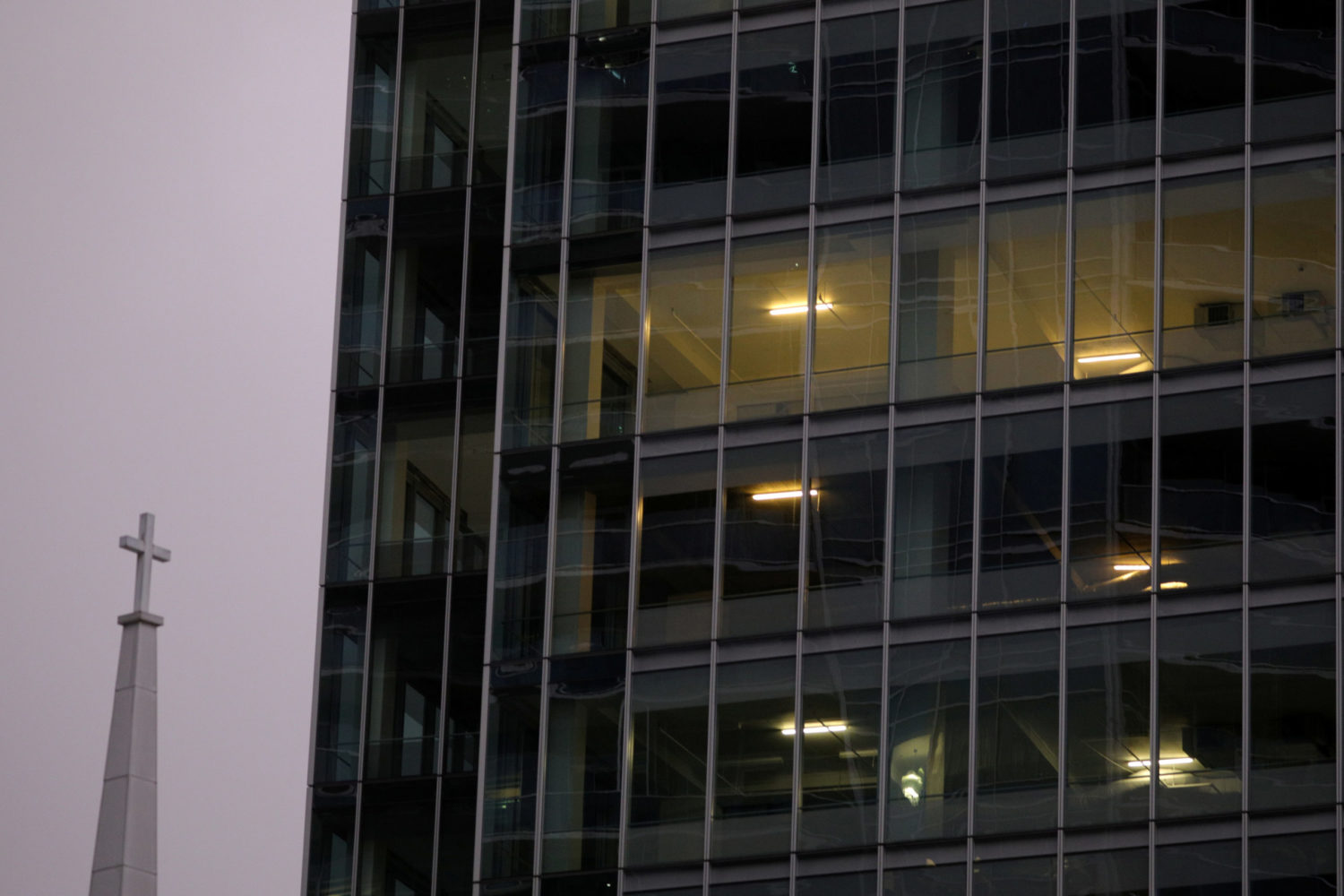
By Stephanie Nebehay, Alexander Winning and Wendell Roelf
GENEVA/JOHANNESBURG (Reuters) -The World Health Organization (WHO) said on Monday the Omicron coronavirus variant carried a very high risk of infection surges as more countries closed their borders, reviving fears over economic recovery from the two-year pandemic.
Airlines were scrambling to limit the impact of the variant on their networks, while delays in bookings threatened an already fragile recovery for global tourism.
But shares in airlines bounced back with the rest of the market on Monday after a sharp sell-off on Friday as hopes grew that the variant might prove to be milder than initially feared.
The WHO advised its 194 member nations that any surge in infections could have severe consequences, but said no deaths had yet been linked to the new variant.
“Omicron has an unprecedented number of spike mutations, some of which are concerning for their potential impact on the trajectory of the pandemic,” the WHO said.
“The overall global risk related to the new variant of concern Omicron is assessed as very high.”
Further research was needed to understand Omicron’s potential to escape protection against immunity induced by vaccines and previous infections, it said, adding that more data was expected in coming weeks.
U.S. President Joe Biden said the new variant was a cause for concern but not panic and that it would sooner or later arrive in the United States, urging people to get vaccinated. He said it would be weeks before the world knew how effective current vaccines would be against it.
“Obviously, we’re on high alert,” Dr. Anthony Fauci, the top U.S. infectious disease official and Biden’s chief medical adviser, told ABC News. “It’s inevitable that, sooner or later, it’s going to spread widely.”
An infectious disease expert from South Africa, where scientists first identified Omicron, said it was too early to say whether symptoms were more severe than previous variants, but it did appear to be more transmissible.
Professor Salim Abdool Karim also said existing vaccines were probably effective at stopping Omicron from causing severe illness. Scientists have said it could take weeks to understand the severity of Omicron.
South African cases were likely to exceed 10,000 a day this week, rocketing up from barely 300 a day two weeks ago, Karim added.
But South African President Cyril Ramaphosa denounced “unjustified and unscientific” travel bans that damage tourism-reliant economies. His country has said it is being punished for its scientific ability to detect new variants.
After a virtual meeting on Monday, health ministers from the Group of Seven bloc of wealthy nations praised South Africa for its “exemplary work” in detecting the variant and alerting others.
JITTERY MARKETS
Fears the new variant might be resistant to vaccines helped wipe roughly $2 trillion off global stock markets on Friday but markets settled down again on Monday, even after Japan said it would close its borders.
Other countries also imposed travel and other restrictions, worried that Omicron could spread fast even among people with immunity.
Travelers stranded at Johannesburg international airport said they felt helpless as flights from South Africa were cancelled.
“We don’t know what to do, we are just waiting here,” said Ntabiseng Kabeli, a stranded passenger from Lesotho.
Portugal found 13 cases of the variant at a Lisbon football club. Spain, Sweden, Scotland and Austria also reported their first cases.
Japan described its ban on arrivals by foreigners as precautionary.
Health Minister Shigeyuki Goto said tests would determine if a traveler from Namibia was Japan’s first Omicron case.
In Israel, a ban on arrivals by foreigners took effect overnight.
U.N. Secretary-General Antonio Guterres expressed concern that restrictions would leave southern African countries isolated.
“The people of Africa cannot be blamed for the immorally low level of vaccinations available in Africa – and they should not be penalized for identifying and sharing crucial science and health information with the world,” he said.
Guterres has long warned about the dangers of vaccine inequality around the world and that low immunization rates are “a breeding ground for variants.”
More than 261 million people in over 210 countries have been reported to be infected by the coronavirus since the first cases were identified in China in December 2019 and 5,456,515 have died, according to a Reuters tally.
The new variant was discovered just as many parts of Europe were suffering a fourth wave of coronavirus infections as winter grips the continent in the runup to Christmas, with more people gathering indoors and increasing the risk of infection.
European Central Bank chief Christine Lagarde tried to reassure investors that the euro zone could cope with a resurgence of infections.
“We now know our enemy and what measures to take,” she told Italian broadcaster RAI late on Sunday. “We are all better equipped to respond to a risk of a fifth wave or the Omicron variant.”
(Reporting by Reuters bureaus; Writing by Himani Sarkar, Catherine Evans and Nick Macfie; Editing by Clarence Fernandez and Peter Graff)












